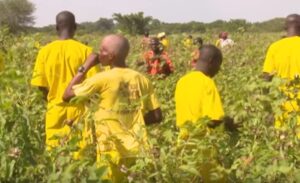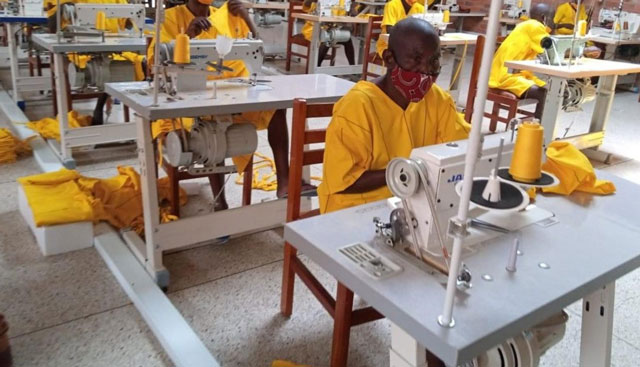The Uganda Prisons Farms and Industries program has revolutionized the lives of inmates and the communities they serve by combining sustainable agriculture and skilled trades.
According to a statement released by the Uganda Prisons Service (UPS), the groundbreaking endeavor is making strides in empowering incarcerated individuals by reducing relapse rates and fostering community development across the country.
“At the heart of this program are the 64 prison farm units scattered across Uganda, each with its own unique scale and enterprises. These farms are not only a source of food and income for the prisons but also a platform for inmates to acquire practical skills and cultivate a sense of purpose,” the statement reads in part.
The UPS noted that the agricultural activities within the Prison Farms Units are diverse and far-reaching, where inmates engage in crop production, growing staple foods like maize and beans, as well as a variety of vegetables.
“Inmates are involved in maize seed multiplication, producing high-quality seeds for distribution to farmers across the country, and contributing to the nation’s textile industry through cotton cultivation,” the statement read.
The statement mentioned that animal husbandry is a key component of the program, with inmates rearing livestock such as cattle, pigs, poultry, and goats, adding that the Lugore Prison farm even boasts a bio-gas production facility, generating energy from organic waste.
According to the statement, the Prisons, Farms, and Industries initiative also prioritizes infrastructure developments, noting ongoing projects that include the construction of massive 3,000-metric-tonne silos in Ruimi (Western Uganda) and Lugore (Northern Uganda) for improved storage and post-harvest handling.

The statement further highlighted that a maize seed treatment and processing plant has been established at Ruimi, enhancing seed quality and productivity.
“Along with the agricultural pursuits, the program offers inmates the opportunity to develop a diverse range of skills in various industries and trades. Inmates receive training in textile and garment production, furniture making and carpentry, metalwork and welding, crafts and handicrafts, printing and publishing, bakery and confectionery, environmental conservation, and manufacturing,” the statement added.
The statement added that the program is not just about providing food and income for the prisons; it’s about empowering inmates with practical skills and knowledge so that they can become productive members of society upon their release, ultimately reducing backsliding rates and contributing to the development of the community.
“The current effects of this initiative are already visible. Inmates who have undergone the training programs are finding success in their post-release endeavors, securing employment or starting their own businesses, and contributing to the economic and social fabric of their communities,” the statement revealed.
This follows questions raised by some individuals on the legality of inmates undertaking manual labor work on prison farms and industries. However, some requested that prisoners be skilled and deployed in prison farms and industries to become productive individuals while they serve their sentence.















